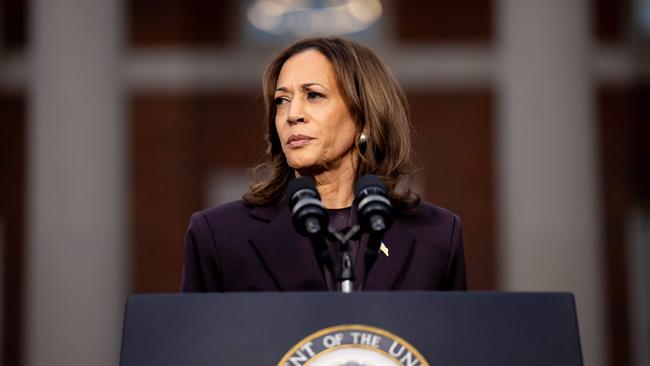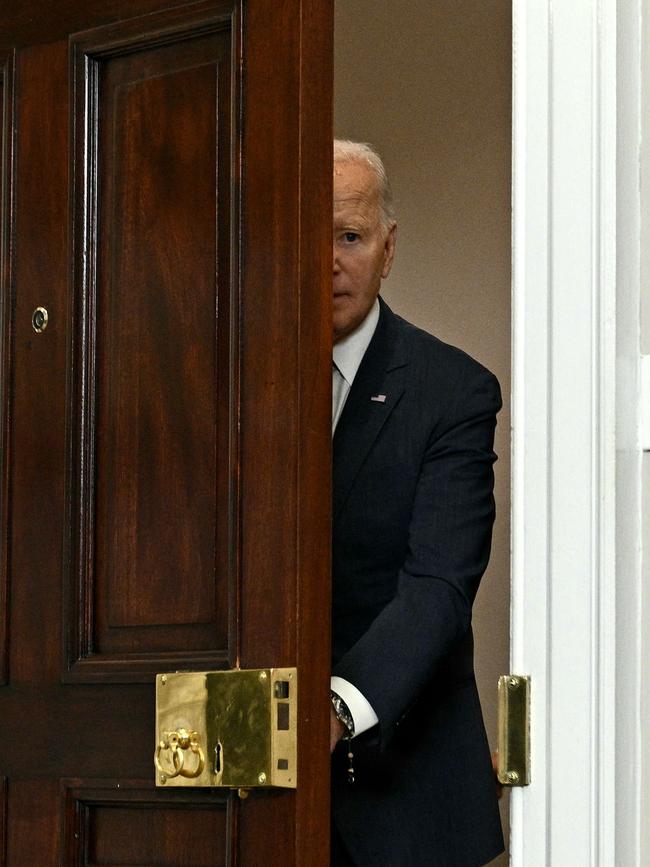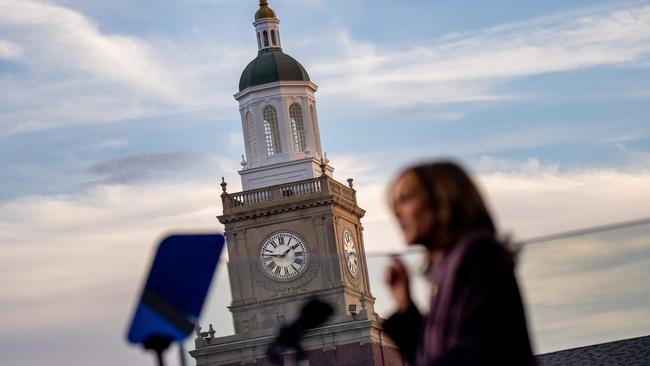
In many ways, you had to admire Kamala Harris in defeat.
Her appearance at Howard University on the afternoon after being smashed by Donald Trump, was perfect, professional politics; she didn’t go feral and rant about the president-elect’s mind or soul. Instead she followed the script that democracies demand of their leaders – grace under duress; commitment to their political beliefs; acceptance of the electorate’s choice.
She wobbled a bit when the speech veered into the adage about darkness and the sky and the “light of a brilliant, brilliant billion of stars”.
But overall, the Vice-President of the United States of America behaved in the way that those who believe in democracy, as practised post-WWII, expect. And that, of course, is part of the problem.
If we have learnt anything from the Trump years it is that the verities we have relied on to navigate our way through public life – the shared language, the careful exercise of power – are suddenly up for grabs.

Under those conventions, Harris had little choice but to fall back on appropriate behaviour in the face of the biggest disruption to political culture in the West since the mid-20th century.
Unlike the unfiltered Trump, there was no way the Democrat could really say what she thought about the whole shemozzle.
Yet we know that her words and her stance have next to zero chance of cutting through in the new world in which we find ourselves.
Even her own supporters must surely despair at how impossible it is to imagine a pathway back to her side of the divide – and what a divide it is – in the near future.
It’s not clear whether any politician with a different set of policies could ever counter Trump, this extraordinary political animal who is as canny and original as he is ruthless.
Trump has so normalised his extreme language and attitudes that it is impossible right now to see how he can be challenged.
This is not an argument for our politicians to copy the same outrageous, extended speeches filled with vile slurs and lies.
Rather it is a recognition that we are witnessing profound changes to the way both democracy and capitalism have been practised in the past six or seven decades.
Many different people from many different ethnic, religious and economic groups came out for Trump on Tuesday and the analysis of who they are and why they did will keep political scientists and PhD students, not to mention pollsters and political operatives, busy for years. We already know, however, that many of them shared a common disillusionment with the way we do things around here. Democracy and capitalism have never really worked equally for everyone, but the concepts and institutions held together through great social and technological disruption. Until they didn’t.

For those of us who have benefited from and relied upon both intertwined systems, who believed for the longest time that they were better than the alternatives, the Trump re-election is confronting. That’s not because of his policies on immigration and trade or even his (now somewhat complicated) statements on abortion, or even the simplistic solutions he offers on Ukraine.
He is entitled, after all, under our version of democracy, to push his own ideas about how we should live.
Many people around the world are deeply concerned about the potential for trade wars and a swerve to an isolationist America. They are surely right to question how far Trump will go. But the deeper anxiety comes from the success he has already had in remaking the rules of engagement, of undermining institutions and processes and concepts we have taken for granted. One example – his success in convincing, it seems, a majority of Americans that there is nothing to worry about if government workers are vetted for their support of Trump.
Were we wrong to believe that public servants have a right to their own political views, or do Trump’s followers have a point if they argue that anyone paid by their taxes needs to drink their brand of the Kool-Aid?
Trump’s election means that a stack of our assumptions about the way the world works are about to be tested – big time. It’s a dangerous moment to navigate, given Trump’s lack of discipline. And it’s one in which the old scripts – the old adages – may prove of little help.






In the end, she stuck with the pants suit. And the smile. And the delivery and the rhetoric.